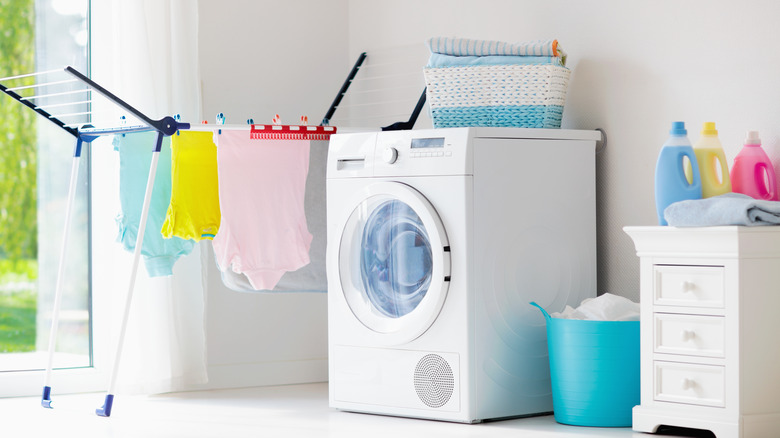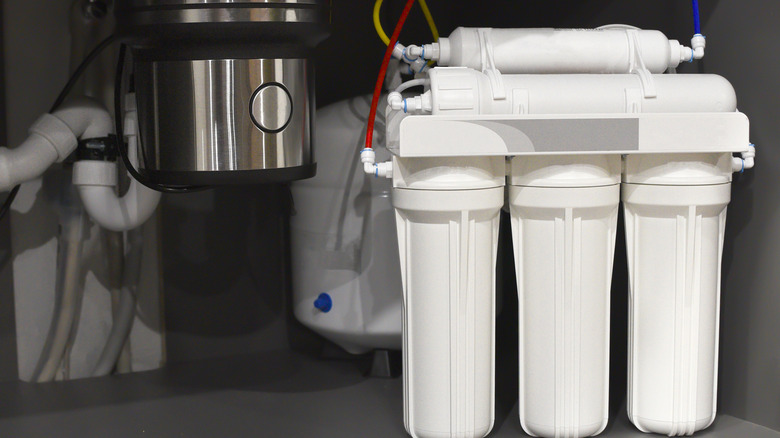How Long Does A Water Softener Really Last?
We may receive a commission on purchases made from links.
A water softener filtration system is installed when a home is determined to have hard water, meaning that there is a build-up of calcium, magnesium, lime, and other hard minerals in the water (via Culligan Water). These minerals often leave behind a deposit that causes a crusty residue on plumbing fixtures and can even clog pipes and hot water heaters.
If you're unsure whether you have hard water, there a few telltale signs to look out for: You may notice a build-up of soap scum in your tub, sinks, or shower walls. It's also common to feel a stiffness in your clothing after washing. You may even find that your skin and/or hair becomes irritated or dry after bathing. Geographical area also plays a huge part in water hardness. If you live in the southwestern or midwestern states in the U.S., you have a higher probability of encountering this problem (via Bob Vila).
So now you suspect you have hard water. What's the next step? The most cost-effective option is to purchase an at-home water hardness kit that can test for high concentrations of minerals in your water. The kit comes with strips that you dip in your water and compare to a color chart located on the bottle. A hardness level of more than three GPG or 50 PPM is a sure indication that you need to treat your water with a water softener system. Keep scrolling to learn more about this filtration system and how long it lasts.
The amount of time water softeners last may surprise you
Water softeners perform a very important job in homes or other places that are determined to have hard water. However, a water softener filtration system is just like any other appliance — it will only last for so long before components break or electrical issues wreak havoc. As a general rule, you can expect a good 10-15 years out of your water softener before needing to replace it (via Water-Right). The variance in the lifespan of a water softener depends on several factors, most importantly the hardness of your water and how much the system has to work to get rid of the minerals.
It isn't always necessary to completely trade out your water softener. Sometimes there may be a certain component that needs replacing or a valve that gets jammed. But how do you know when it's time to call someone to make the determination for a repair or replacement? One of the easiest ways to tell whether your water softener is failing is if you have a hard time lathering soap in the shower as hard water prevents soap from lathering. Another telltale sign is the taste of your water. Simply put, water that is chock full of minerals will taste differently. A new water softener may be all you need to keep your home, your laundry, and your appliances in top shape, so don't hesitate to call a professional to take a look if you suspect any problems.

